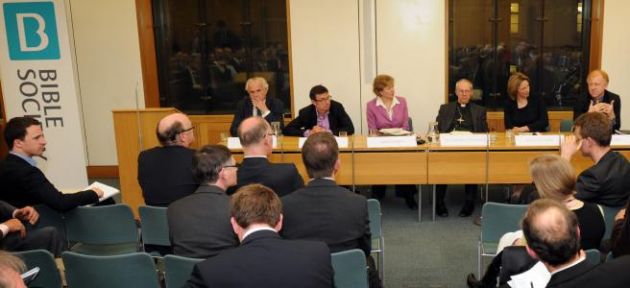Economic 'depression' could take generation to recover from - Archbishop's warning

The Archbishop of Canterbury says it will take "drastic action" to restore confidence and trust in British banking.
At a Bible Society event in Westminster, the Most Reverend Justin Welby suggested structural changes like the break-up of "one or two" big banks and a return to smaller, more locally-rooted banks.
"Distance from where a bank is based to where it is lending and operating lends ignorance to credit scoring and is repaid with economic lethargy," he said.
"One of the great dangers in the present mess is that we retain an extraordinarily, even now more concentrated banking industry which remains incapable of localisation."
He continued: "At least part of the banking system should be local not London-based and have its roots in its own community at a size where it has efficiencies in scale and is manageable.
"We need to recreate the local and the easiest way to do that, as well as bringing new entrants in, is to kill two birds with one stone by recapitalising at least one of our major banks and breaking it up into regional banks.
"This would also have a major impact on remuneration, an area which is essential."
He predicted it would take a long time for Britain to recover from its current financial woes.
"Historically, economic crises are a major problem when they are severe: when they are accompanied by a financial crisis and a breakdown in confidence then they become a generational problem," he said.
"Historically the great failures in banking have led to very, very long periods of recession at best.
"And I would argue that what we are in at the moment is not a recession but essentially some kind of depression.
"It therefore takes something very, very major to get us out of it in the same way as it took something very major to get us into it."
The Archbishop was formerly a City oil trader before entering into ordained ministry.
He called for a banking industry based on "service to society" and a heart for the "common good" as opposed to prioritising the satisfaction of shareholders.
"Businesses should be companies of common interest that serve the common good," he said.
"There need to be values within them that's compassionate, empowering and all-knowing."











